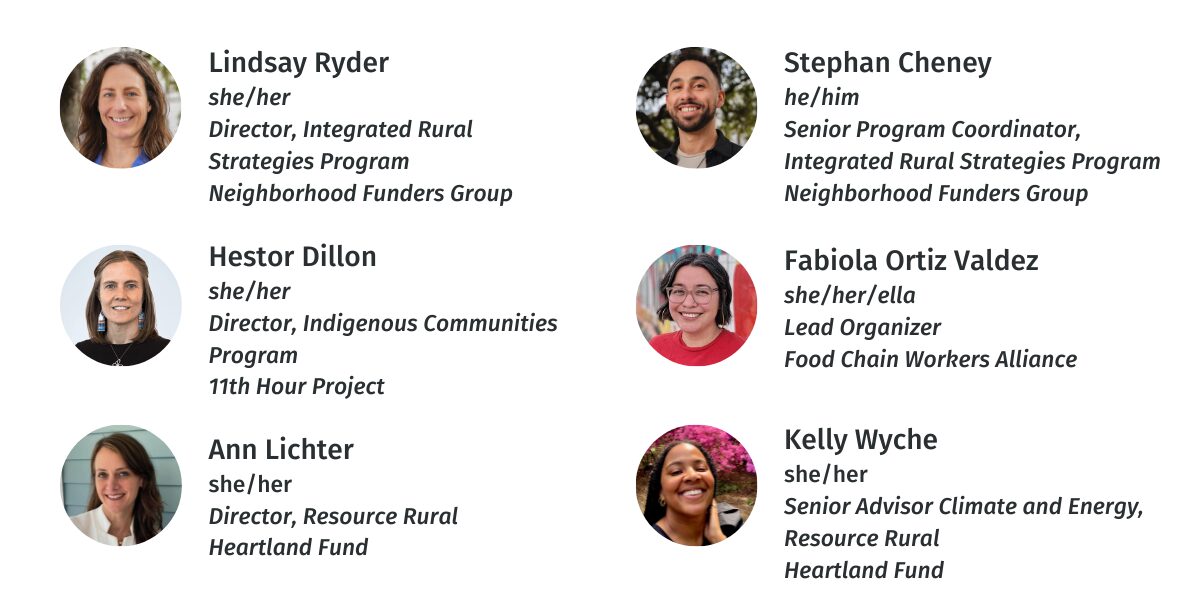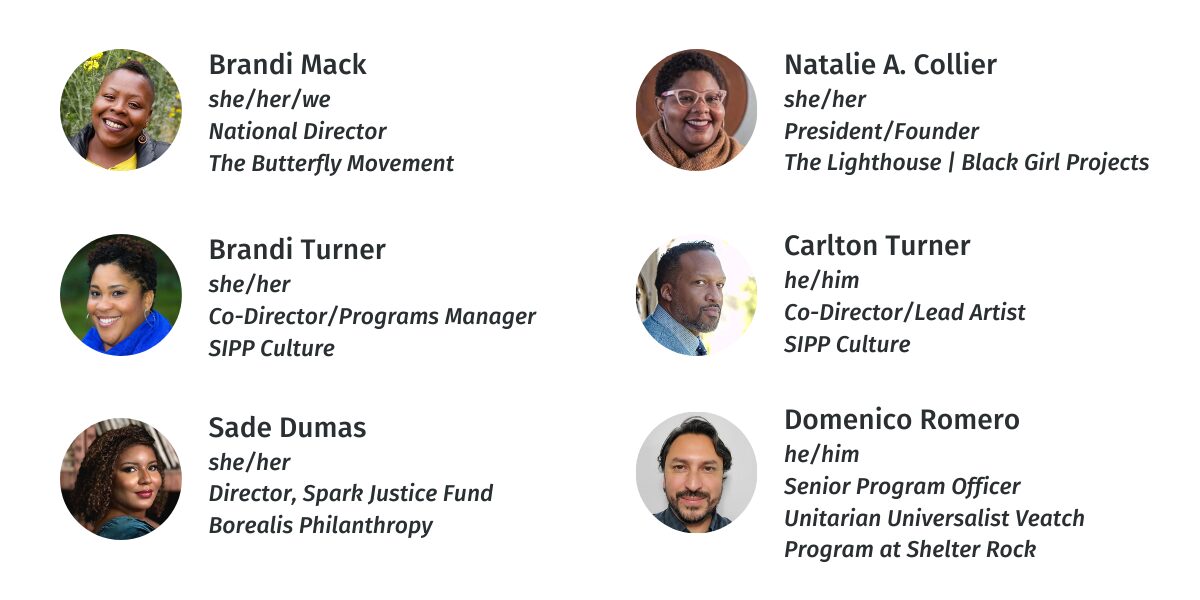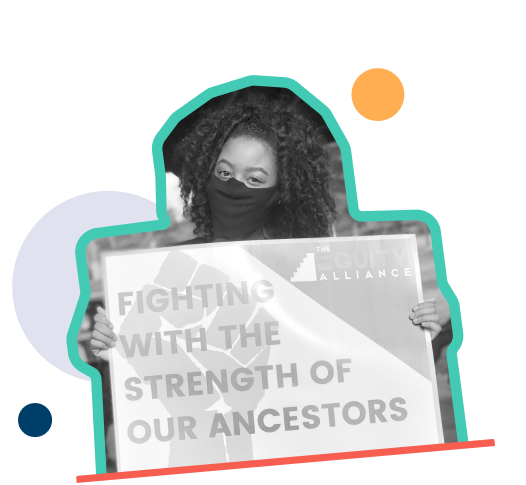Dear friend,
As a Lakota person who has lived most of my life in a rural landscape, I am deeply familiar with both the innovation and struggle that comprise rural life. Across the US, insufficient investment and policy enacted without community input continues to erode basic access to housing, food, and healthcare in rural communities; for Black, Indigenous, and people of color living in rural landscapes, these conditions are exacerbated by systemic racism and a history of land theft, exploitation, and injustice. As a result, rural communities have been forced to create systems of care, including community-held transportation services and meal distribution programs. This intimate understanding of inequity in rural communities is part of what led me to my work at Neighborhood Funders Group as the Senior Program Coordinator of Integrated Rural Strategies Group (IRSG).
IRSG is a network of funders helping to build community-led capacity to advance justice and equity for rural communities. We do this by resourcing a future where BIPOC and low-income people in rural communities have the power to inform and influence the conditions of their lives, with change they can materially see.
At IRSG, we work in partnership alongside our Coordinating Committee of funders and committee of Movement Advisors to educate funders and elevate the importance of equity in rural areas within the broader philanthropic community nationwide — lifting up innovation, best practices, and lessons learned to increase understanding and influence practice in the field.
This week, we are hosting the 4th annual Rural Equity Summit, which is our key space to spotlight innovative practices and strategic partnerships led by rural community leaders and funder partners. This year the Summit is designed to:
-
Increase collaboration and deepen the accountability of IRSG’s network of funders to resourcing justice and equity-advancing work in rural communities;
-
Catalyze funders to move boldly together to advance climate justice, land sovereignty, building multiracial democracy and more; and
-
Foster relationships between funders and rural community leaders to build trust-based and community-centered approach to grantmaking in rural communities.
I encourage grantmakers to join the IRSG community at our flagship event, which will begin by showcasing the why and how behind funding rural communities, and what foundations are already doing to resource rural communities/workers and Indigenous populations. Later, we will specifically explore the rural landscape of federal climate and infrastructure funding, as well as the concrete roles grantmakers can serve in supporting grantee partners to access these funds in ways that advance equity and self-determination in rural communities. On the final day of the Summit, we will dive deeper into the what and how of community power building in rural communities with a specific focus on race and class dynamics, and the ways funders can resource this critical work most impactfully and help actualize communities’ visions for justice.

Over the course of the Summit, grantmakers will hear from a dynamic group of IRSG’s partners, including funders from 11th Hour Project’s Indigenous Communities program, Heartland Fund’s Resource Rural program, Borealis Philanthropy’s Spark Justice Fund who will discuss the strategies and approaches their organizations are taking to fund the rural organizing ecosystem. And rural community leaders from Food Chain Workers Alliance, SIPP Culture, The Lighthouse | Black Girl Projects, and The Butterfly Movement will share how culture, art, food sovereignty, civic education, and the built environment affect community power building, as well as what is possible for BIPOC and low-income rural communities when power is built.

Both at the Summit and into the foreseeable future, the Integrated Rural Strategies Group and its programing will be our collective workspace to mobilize philanthropy and equip foundations with the knowledge and strategies to actualize their support for rural organizing.
Lindsay Ryder, Director of IRSG, and I invite you to engage more deeply with NFG as a political home that prioritizes creating safety and space for consciousness shifting and political education leading to action.
In solidarity and with anticipation for the transformative work ahead,
Stephan Cheney
Senior Program Coordinator
Integrated Rural Strategies Group | Neighborhood Funders Group
